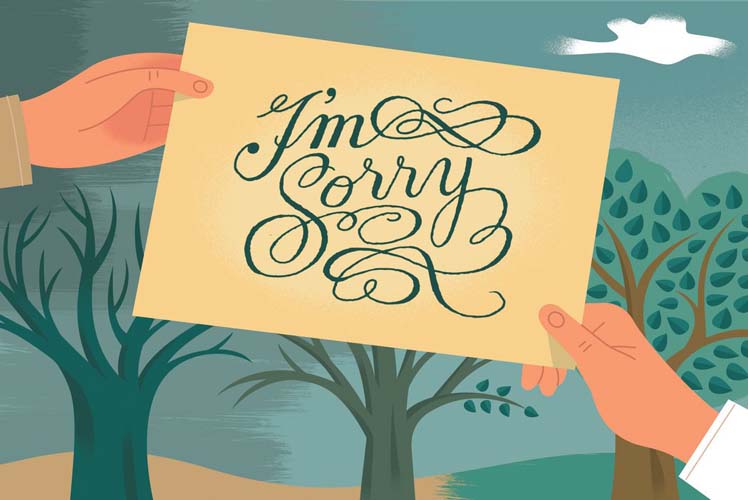
The legend goes that Rev. Peter Miller was the pastor of a small Baptist church in Ephrata, Pennsylvania, during the Revolutionary War. Rev. Miller was much loved by all the people of Ephrata, except for the local priest of the Church of England who was scornful of Miller and opposed Miller on every possible issue.
This particular priest, it turned out, was no friend to the Colonial cause. And because Miller was sympathetic to the revolutionaries, the priest called for Miller and many others to be hanged in the town square for treason against the King of England. But near the end of the war the situation changed, and the priest was himself arrested for treason and sentenced to die by the Colonial government for conspiring with British troops.
Rev. Peter Miller’s response to this turn of events was remarkable. As soon as he received the news, he walked 60 miles to Gen. George Washington’s encampment. There he pleaded passionately for Washington to intervene and pardon the priest. Assuming Miller was the priest’s friend, George Washington shook his head and told Miller regretfully that he could not agree to spare his friend’s life.
Rev. Miller then told Washington that the priest was not, in fact, his friend. Actually, the man was his very worst enemy. An amazed Washington then asked Miller why in the world he would have walked 60 miles to try to save the life of an enemy. Miller’s answer gives us pause. He said he had come to plead for this man’s life because on consideration, on several points of their disagreement, the priest may have been right!
The story goes that when Washington heard this explanation, he decided to spare the priest’s life. Obviously, Washington admired the gritty determination of Rev. Miller to be an advocate for someone with whom he had never really seen eye to eye. He apparently appreciated Miller’s humility and his honesty. He seemed to agree that we may often be as indebted to our enemies, for what they teach us, as to our friends.
We wonder, could we be as generous with our compassion and our concern for an enemy’s misfortune as Miller and Washington? It’s hard not to exult in our enemy’s downfall. But what if we could acknowledge that on a number of points, our adversary may, in fact, be right? Maybe our humility could end an on-going dispute, or begin a friendship, or even save a life.
Perhaps we aren’t right about everything, after all. And, as people of faith, our uncertainty could sometimes be as faithful and loving as our certainty; and admitting our fallibility may be the beginning of the greatest wisdom of all.



